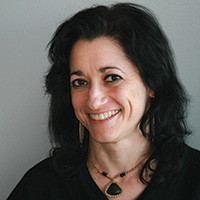What started as a small-time techie challenge has exploded into an international game-playing phenomenon. Geocaching, most often described as a high-tech treasure hunt, was started seven years ago by Dave Ulmer in Portland, Ore., when he hid a cache, or small prize, and posted its coordinates on a newsgroup site. The treasure was found using a global positioning system (GPS), and the idea for a geocaching community sprouted from there. Today, there are more than 280,000 caches around the world listed on sites like www.navicache.com and www.geocaching.com, which is run by the company Groundspeak.
A year after the birth of geocaching, John Chen created Geoteaming under the parent company PlayTime.
“After 10 years working at Microsoft, I wanted to do something different, create human change,” Chen says. “An advisor sent me an e-mail about geocaching and how it would be great for team building. The geocaching people were three miles from my office so we created a partnership.”
Since then, Geoteaming has organized more than 400 events, including several programs in New York, from 14th Street to Battery Park, and out to Hudson River Park as well as the Brooklyn Bridge—any area where satellite reception is strong enough and not blocked by skyscrapers.
The half-day program starts with the Geoteaming crew dividing the group into teams and explaining the technology, which includes GPS systems, digital cameras, two-way radios, and Pocket PCs, among other gadgets.
Each cache is worth a different amount, depending on the degree of difficulty in finding it, and there is a scorecard in each cache revealing its worth. Teams add up the scorecards they have found, and there are awards passed out for the highest score as well as other incentives, such as the funniest photo during the event.
“Teams also work together with other teams for the good of the company, creating a real-world scenario,” says Andrew Gustafson, director of sales at PlayTime.
For high-end clients, Geoteaming has gotten even more creative, designing programs such as Amazing Race-style courses.
Another company, Teambonding, runs a division called GPS Scaventure, which organizes team-building hunts for groups.
“Groups interested in GPS hunts tend to be younger and hipper,” says David Goldstein, who runs GPS Scaventure on the East Coast.
The company offers innovative hunts as well as more traditional hunts, such as a series of riddles and clues that lead from one place to the next. GPS Scaventure averages 30 to 35 GPS hunts a year on the East Coast alone, many held in green spaces such as Central Park, and it has handled groups of up to 350.
Geocaching itself is popular in the Finger Lakes region, where roughly 400 caches are hidden.
“Corporate geocaching is still in its early stages,” says James Hooper, community director at the 4-H Camp Bristol Hills, which organizes team-building exercises.
The corporate geocaching program at 4-H Camp Bristol Hills is still being designed, with caches set to be placed specifically for group programs.
For More Info
4-H Camp Bristol Hills 585.394.3977
www.4hcampsny.org/bristol_hills/offseason.html
Geoteaming (PlayTime) 877.652.0875
www.geoteaming.com
Teambonding 781.793.9700
www.teambonding.com



